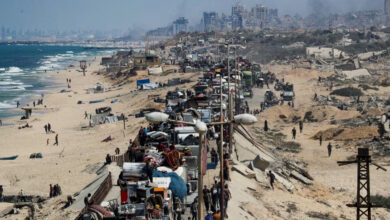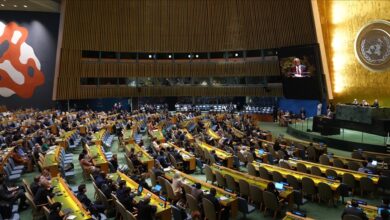Saudi Arabia will deposit US$1 billion at the Egyptian central bank and buy T-bonds worth $750 million by the end of April as part of a $2.7 billion package to support Egypt's battered finances, an Egyptian official said on Thursday.
Egypt's foreign reserves have tumbled by more than $20 billion to $15.12 billion during the political turmoil and spasms of violence since Hosni Mubarak was ousted from power last year. The budget deficit has spiraled.
The Egyptian official told Reuters the Saudi package had been agreed two days ago at a meeting of Arab officials in Morocco. There was no immediate comment from Saudi officials.
The Egyptian official, who asked not to be identified, said the package includes $250 million of support to buy fuel, which could help intermittent shortages that have led to queues at gasoline stations and fueled public anger.
It will also include $500 million in project finance with an additional $200 million going to small and medium sized enterprises, the official added.
An imminent financial crunch is overshadowing Egypt's transition from army to civilian rule. Egyptians vote in May on a new head of state to whom the military is due to hand power on 1 July.
Egypt said last year that Saudi Arabia and other Gulf Arab states had pledged billions of dollars in support, though till now just $1 billion had been provided, with Saudi Arabia and Qatar offering $500 million each.
The countries were close allies under Mubarak and Egyptian officials have expressed frustration at the slow pace of the arrival of funds pledged by Gulf states.
Economists have said dispersal of the funds would provide relief for Egypt but add the country needs to swiftly stablise its economy by drawing back tourists and the kind of investment it was attracting before the anti-Mubarak uprising.
Faiza Abouelnaga, Egypt's minister of international cooperation, had earlier told reporters Saudi Arabia would provide Egypt with the financial support but did not say when.
Separately, Egypt is negotiating a $3.2 billion financing facility with the International Monetary Fund, but a tussle over terms between the army-appointed government and the Muslim Brotherhood which dominates parliament has hindered a deal.




